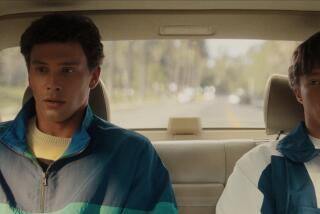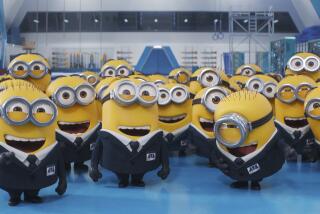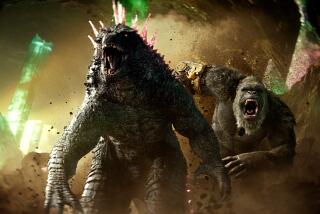Review: Human stories form the core of ‘Monarch: Legacy of Monsters,’ but Godzilla’s ever-present
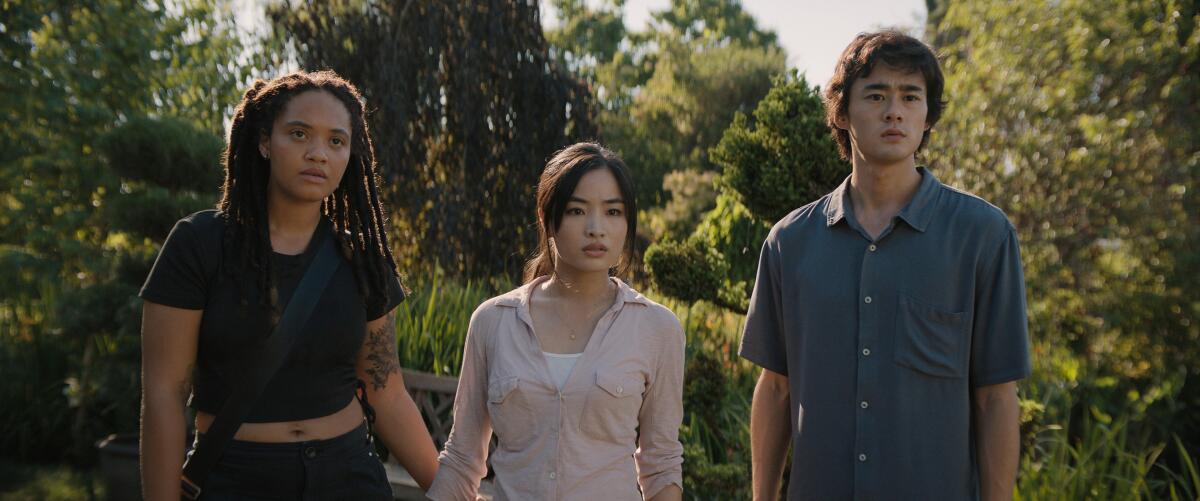
There have been 37 Godzilla movies since 1954, made with inconsistent continuity, changing tone and variable quality control, but alike in that the star is unkillable both within the series and in the hearts of its admirers. The latest, the Japanese “Godzilla Minus One,” is currently in theaters here, while the American “Monsterverse,” with characters licensed from Toho Co. Ltd., has just produced an immensely enjoyable television series, “Monarch: Legacy of Monsters,” premiering Friday on Apple TV+.
Godzilla belongs to Japan in the same way that, say, the Doctor of “Doctor Who” will always be British, even though that character is from a different planet and mutable in every other respect. It’s a failing of the four American films that they have relatively little Asian content. Godzilla is a creature with particular meaning in Japan, an atomic monster created a mere nine years after nuclear bombs destroyed Hiroshima and Nagasaki and Tokyo was firebombed — a memory as a much as a metaphor. In a sense, Americans shouldn’t be making Godzilla movies at all.
So it’s good to see that the series, which is set between the 2014 “Godzilla” and the 2019 “Godzilla: King of Monsters,” respects the big guy’s national origin. Japanese characters play major roles here and Tokyo gets its close-up.
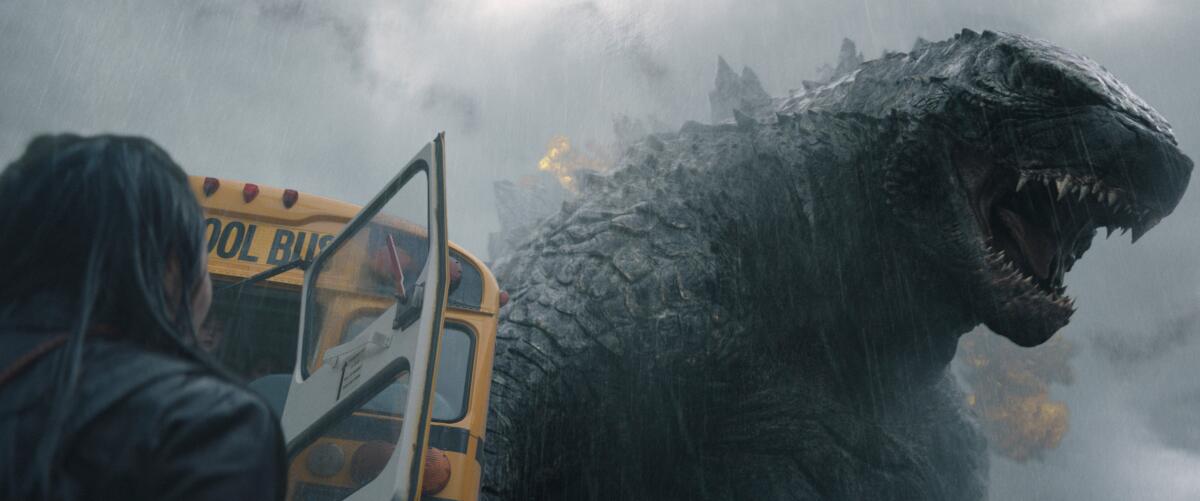
That city, thoroughly destroyed and magically rebuilt so many times over the life of the canon, has not yet had the experience of being crunched by monsters — only San Francisco has had that honor, as shown in the Monsterverse “Godzilla” — though it is ready, with special evacuation routes and missile launchers mounted on freeway overpasses.
“Monster prep — big business now,” a cab driver tells Cate Randa (Anna Sawai), a traumatized survivor of the San Francisco “G-Day,” who has come to Tokyo to solve a mystery: Her father, Hiroshi Randa (Takehiro Hira), who disappeared in the wake of that battle, is presumed dead in an Alaskan plane crash — presumed, I say — and she has come to have a look inside his Tokyo apartment. What she finds there is another wife and an unsuspected half brother, sullen artist Kentaro (Ren Watabe). Along with a father, Cate and Kentaro share father issues, and a desire to get to the bottom of his disappearance; after some negotiation, they put aside their mutual suspicion and visit Hiroshi’s office, where, in a safe behind a map, they discover a satchel.
We have seen that satchel before, in a prologue set in 1973, thrown into the ocean by John Goodman, briefly reprising his role from 2017‘s “Kong: Skull Island.” It contains an obscure data drive, which brings Kentaro’s American friend — girlfriend, sorta — May (Kiersey Clemons) into the picture; she possesses the hacking know-how and speed typing skills no science-fiction film can do without. Her digging triggers an alarm, which alerts the forces of Monarch, a quasi-military monster-monitoring organization, which we understand to have entered a decadent period. And away we go.
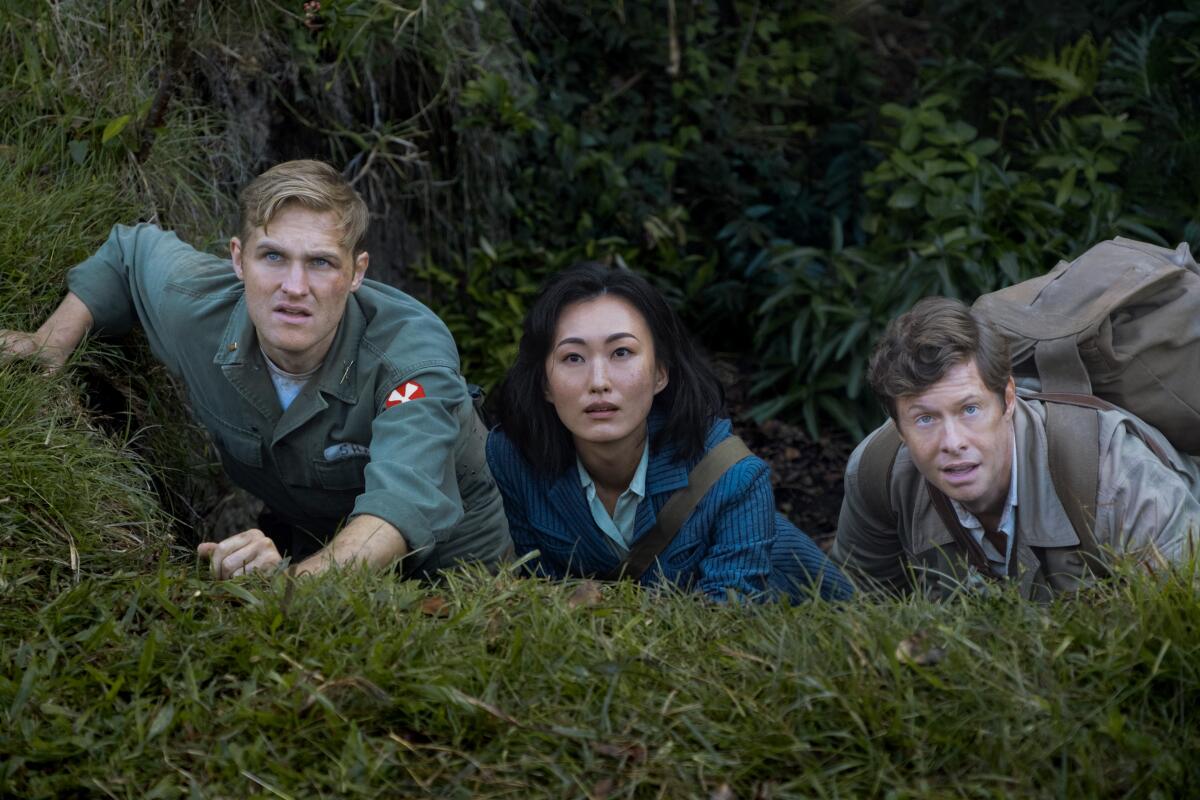
As this storyline is being developed, we cut to the 1950s, where the groundwork for the present situation is being laid, and another trio: Lee Shaw (Wyatt Russell, son of Kurt), appointed by the army to guarantee the safety of cryptozoologist Bill Randa (Anders Holm, who will grow up to be the aforementioned John Goodman) and Dr. Keiko Muri (Mari Yamamoto), on their way to investigate puzzling phenomena at a shuttered nuclear facility in Kazakhstan. It’s clear from the first that they’re old friends — we’ll flash back eventually to their meeting and evolving history — and that Bill, a bit of a goofball, and Keiko are a couple with a child, and that there is something triangular about their relationship, in a “Jules and Jim” way.
The trio becomes a quartet when they contact an older Shaw (Kurt Russell, Wyatt’s father and the series’ Big Star) for help. He’s being held in a Monarch retirement home — something like the Village in “The Prisoner” — from which one feels he could have walked away at any time. But the kids give him a reason to go — which jibes with his own reasons — and they go. Like most any satisfying adventure films, this is a story about teams, teammates and teamwork. “I always thought ‘The Goonies’ deserved a sequel,” a Monarch bigwig will sniff ironically when the youngsters set off on a mad mission; but people do love “The Goonies.” These are people who need people — they’re heroes, but they’re vulnerable too — and one giant reptile.
It isn’t necessary to have seen the three Monsterverse films to understand “Monarch”; the series has its own tone, characters and themes, though some — military hubris, human injury to the natural world — reappear through the whole history of Godzilla. Everything important is clear from context, and, indeed, you might be better off coming in fresh, without the distraction of tying “Monarch” to an extended world; the series can be hard enough to keep track of as it is, with its multiple storylines and time shifts. (It doesn’t help that Bill and Keiko are the grandparents of Cate and Kentaro, and Lee, who should be about 90, as is more than once mentioned, is played by Kurt Russell, who is 72 and doesn’t look it.)
It’s all to the good that Russell, who established his genre cred in films like “Escape From New York,” “The Thing” and “Big Trouble in Little China,” is not playing an autumnal version of some franchise hero; but an original conception (if very much an adventure-movie type, the wisecracking grizzled old pro). With his swept-back hair, impressive jaw and lively eyes — he is still visibly the Computer Who Wore Tennis Shoes — Russell’s Shaw is commanding, and, like many characters here, sometimes hard to figure out. (Just who are the good and who are the bad guys is not always clear, and maybe there are no bad guys.) And that he’s the oldest, the most experienced, and troublesome of the lot adds to his authority. Plus, he gets all the funniest lines.
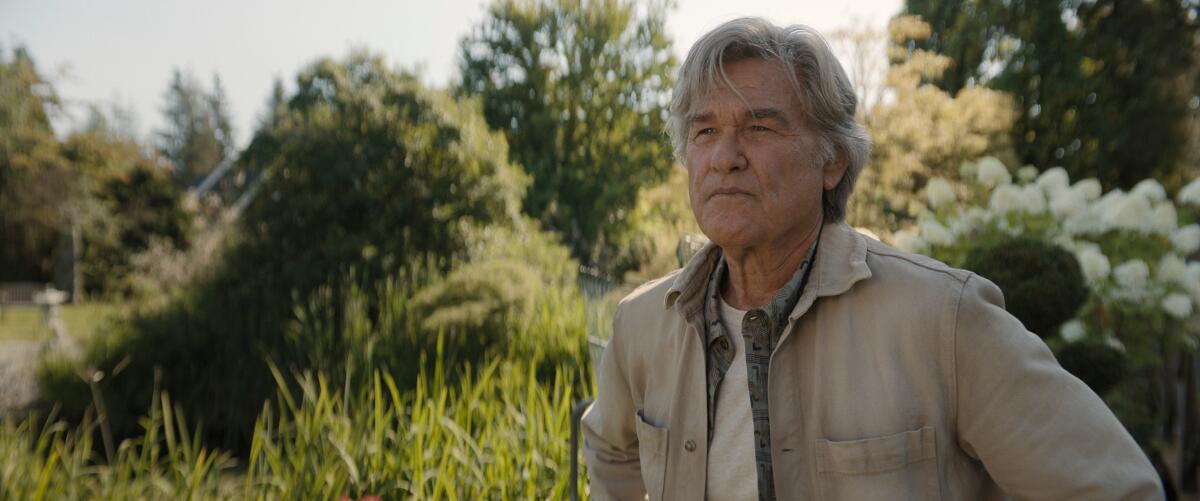
Which isn’t to say Russell is the whole show. (With its double timeline, each with a complement of flashbacks, there’s a lot of show to go around and characters to fill it.) Sawai as Cate and Yamamoto as Keiko, who are doubles in impulsiveness, resolve and dignity, hold the screen with equal power; Clemons’ May, with her wounded bravado, is quite moving. Wyatt Russell, so great and different in “Lodge 49,” does a fine job of playing his father’s character before he became that character. But the series is cast well from top to bottom, with Joe Tippett and Elisa Lasowski also notable as Monarch operatives.
As to the series’ other big star — largely unseen, yet always present — unlike, say, three-headed Ghidorah, there is something sort of cuddly about Godzilla, with its pear-shaped body and little head; even its roar might remind you of a household pet. (Cate will have a moment of connection.) Monsters without intelligence are boring — you can keep your zombies — and, as all right-thinking people believe, Godzilla, despite the immense collateral damage it causes, is one of the good guys.
While it wouldn’t surprise me to see the series finish with the sort of battle royal that forms the climax of most every monster movie, superhero flick, fantasy film or space opera in the last 20 or 30 years, big scary CGI creatures appear only occasionally in the eight episodes, out of 10, available for review. That will spell disappointment for some, but it allows lots of time for the human stories — the sought-for father, the lost loves, the emerging bonds — that make “Monarch” engaging. Where the big-screen American films can be a noisy, dark slog, the dramatic equivalent of a giant lumbering dinosaur, “Monarch” stays fleet, and fun.
More to Read
The complete guide to home viewing
Get Screen Gab for everything about the TV shows and streaming movies everyone’s talking about.
You may occasionally receive promotional content from the Los Angeles Times.
